Grammy Award for Best Score Soundtrack for Visual Media
The Grammy Award for Best Score Soundtrack for Visual Media is an honor presented to a composer (or composers) for an original score created for a film, TV show or series, or other visual media[1] at the Grammy Awards, a ceremony that was established in 1958 and originally called the Gramophone Awards.[2][3] Honors in several categories are presented at the ceremony annually by The Recording Academy of the United States to "honor artistic achievement, technical proficiency and overall excellence in the recording industry, without regard to album sales or chart position".[4]
| Grammy Award for Best Score Soundtrack for Visual Media | |
|---|---|
| Awarded for | Quality instrumental score soundtrack albums |
| Country | United States |
| Presented by | The Recording Academy |
| First awarded | 1959 |
| Currently held by | Ludwig Göransson, Oppenheimer (2024) |
| Website | grammy.com |
It has been awarded since the 2nd Annual Grammy Awards in 1959. The first recipient was American composer and pianist Duke Ellington, for the soundtrack to the 1959 film Anatomy of a Murder. Originally known as the Grammy Award for Best Sound Track Album – Background Score from a Motion Picture or Television, the award is now known as the Grammy Award for Best Score Soundtrack for Visual Media.[5] Until 2001, the award was presented to the composer of the music alone.[5] From 2001 to 2007, the music producer(s) and sound engineer/mixer(s) shared the award.[5] In 2007, the award reverted to a composer-only award.[5] John Williams holds the record for most wins and nominations for the award, with eleven wins out of thirty-four nominations. Austin Wintory's nomination for Journey at the 55th Annual Grammy Awards was the only time that a video game was nominated in this category before the new category of Best Score Soundtrack for Video Games and Other Interactive Media was created in 2022.[6]
As of 2023, the award's full title is Best Score Soundtrack for Visual Media (Includes Film and Television).
Recipients edit







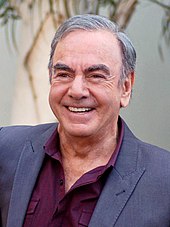

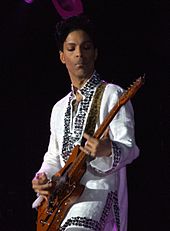
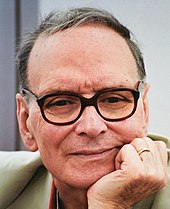
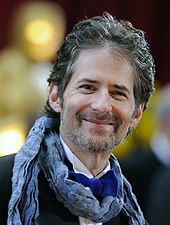
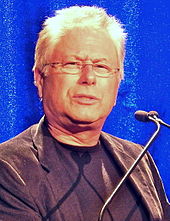




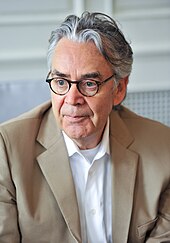
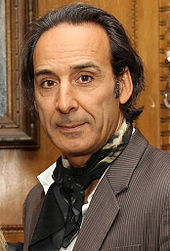




Years reflect the year in which the Grammy Awards were presented, for works released in the previous year.
Name changes edit
There have been several minor changes to the name of the award:[1][5][73]
| Year | Name |
|---|---|
| 1959 | Best Sound Track Album – Background Score from a Motion Picture or Television |
| 1961–62 | Best Sound Track Album or Recording of Music Score from Motion Picture or Television |
| 1964–68 | Best Original Score from a Motion Picture or Television Show |
| 1969–73 1978 | Best Original Score Written for a Motion Picture or Television Special |
| 1974–77 | Best Album of Best Original Score Written for a Motion Picture or Television Special |
| 1979–86 | Best Album of Original Score Written for a Motion Picture or Television Special |
| 1988–90 | Best Album of Original Instrumental Background Score Written for a Motion Picture or Television |
| 1991–99 | Best Instrumental Composition Written for a Motion Picture or Television |
| 2000 | Best Instrumental Composition Written for a Motion Picture, Television or Other Visual Media |
| 2001–11 | Best Score Soundtrack Album for Motion Picture, Television, or Other Visual Media |
| 2012–2022 | Best Score Soundtrack for Visual Media |
| 2023– | Best Score Soundtrack for Visual Media (Includes Film and Television) |
Multiple wins and nominations edit
Up to and including the 65th Annual Grammy Awards (2023)
Wins edit
- John Williams – 11 (6 consecutive)
- Howard Shore – 3 (consecutive)
- Alexandre Desplat – 2
- Michael Giacchino – 2
- Ludwig Göransson – 2
- Hildur Guðnadóttir – 2 (consecutive)
- Alan Menken – 2 (consecutive)
- Randy Newman – 2
- Thomas Newman – 2
- Trent Reznor – 2
- Atticus Ross – 2
- Hans Zimmer – 2
Nominations edit
- John Williams – 34
- Hans Zimmer – 17
- Danny Elfman – 9
- Thomas Newman – 9
- Ludwig Göransson – 4
See also edit
- BAFTA Award for Best Original Music
- Academy Award for Best Original Score
- Critics' Choice Movie Award for Best Score
- Golden Globe Award for Best Original Score
- Grammy Award for Best Compilation Soundtrack for Visual Media
- Primetime Emmy Award for Outstanding Music Composition for a Series
- Primetime Emmy Award for Outstanding Music Composition for a Documentary Series or Special
- Primetime Emmy Award for Outstanding Music Composition for a Limited or Anthology Series, Movie or Special
Notes edit
- ^ John Lennon, Paul McCartney, George Harrison, and Ringo Starr
- ^ For Flashdance, various artists include Michael Boddicker, Irene Cara, Kim Carnes, Doug Cotler, Keith Forsey, Richard Gilbert, Jerry Hey, Duane Hitchings, Craig Krampf, Ronald Magness, Dennis Matkosky, Giorgio Moroder, Phil Ramone, Michael Sembello, and Shandi Sinnamon
- ^ For Beverly Hills Cop, various artists include Marc Benno, Harold Faltermeyer, Keith Forsey, Micki Free, John Gilutin Hawk, Howard Hewett, Bunny Hull, Howie Rice, Sharon Robinson, Danny Sembello, Sue Sheridan, Richard Theisen, and Allee Willis
- ^ For The Last Emperor, various artists include David Byrne, Cong Su, and Ryuichi Sakamoto
References edit
- General
- "Past Winners Search". The Recording Academy. Retrieved April 27, 2017. Note: User must select the "Film/TV/Media" category as the genre under the search feature.
- Specific